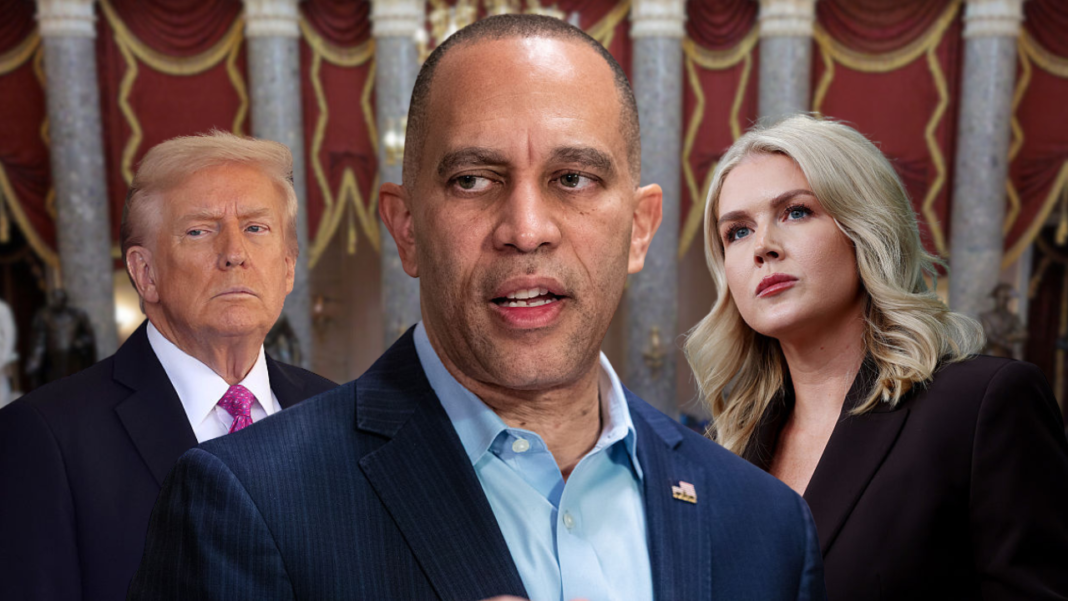In a striking rebuke, U.S. Representative Hakeem Jeffries, the Democratic leader of the U.S. House of Representatives, has drawn attention to what he perceives as a disturbing trend of racism and incitement of political violence within the Republican Party. His comments come amidst a wave of controversies, strongly suggesting that certain factions are no longer hiding their true colors.
Jeffries’s critique follows the emergence of a young Republican group chat that included derogatory and racist remarks, alongside alarming incidents such as a swastika being discovered in one Republican congressman’s office. These examples, according to Jeffries, reveal the deeper issues at play, prompting him to assert that the true nature of some Republican members is becoming unmistakably clear.
“This is apparently who many of these people are. They are ripping the sheets off in plain view of the American people,” Jeffries stated during a news conference. His language conveys a sense of urgency, as he stresses the need for Americans to recognize the troubling rhetoric and actions coming from parts of the GOP.
Highlighting the broader implications of these events, the Congressman mentioned the rising political violence and hatred gripping the nation. He stated, “We’ve already seen a rise in political violence and hatred in America,” underscoring that this moment is more than just an isolated event but rather part of a larger pattern of behavior within the party.
Furthermore, Jeffries spotlighted the inflammatory remarks made by presidential press secretary Karoline Leavitt, who claimed on Fox News that Democrats were “catering” to a constituency of “Hamas terrorists, illegal aliens, and violent criminals.” This statement, according to Jeffries, exemplifies the troubling extremism he sees permeating the Republican rhetoric.
“[She’s] sick, she’s out of control, and I’m not sure whether she’s just demented, ignorant, a stone-cold liar, or all of the above,” he elaborated, criticizing the appropriateness of such language from an official spokesperson. The implication here is severe: that the government’s messaging should align with responsible discourse, rather than descending into baseless accusations against entire groups of citizens.
Jeffries argues that such statements adversely affect public perception, saying, “This is what the American people are getting from the Trump administration in the middle of a shutdown.” He contends that these actions reveal a broader disconnection from the feelings and realities of many Americans, as the GOP navigates a politically charged environment.
His statements resonate with a larger context of frustration among many constituents who feel that their leaders ought to focus on unity and constructive dialogue rather than divisive language. As the first African-American leader of a party in U.S. history, Jeffries’s perspective carries weight, challenging all sides to reconsider the lasting implications of their rhetoric on national harmony.



